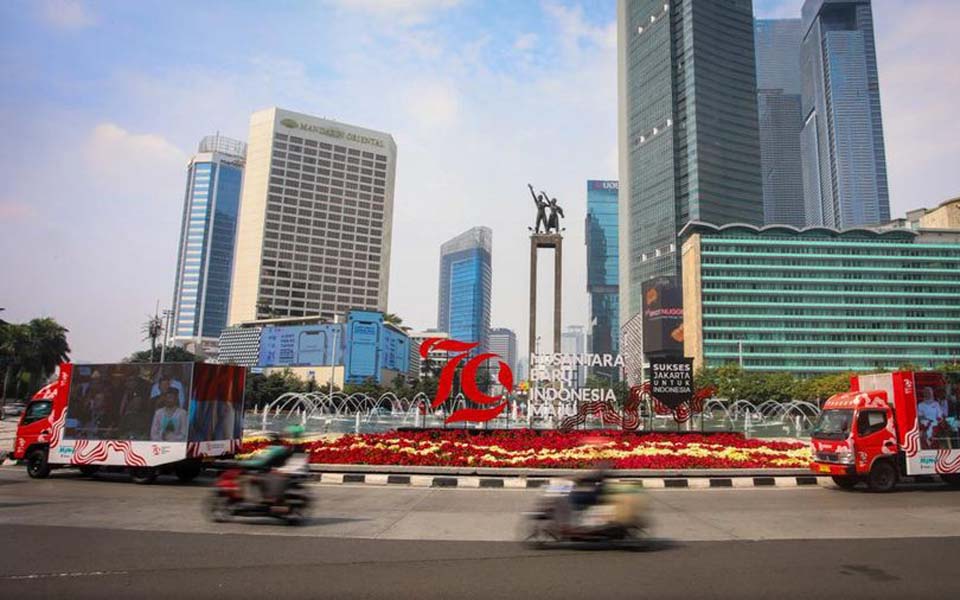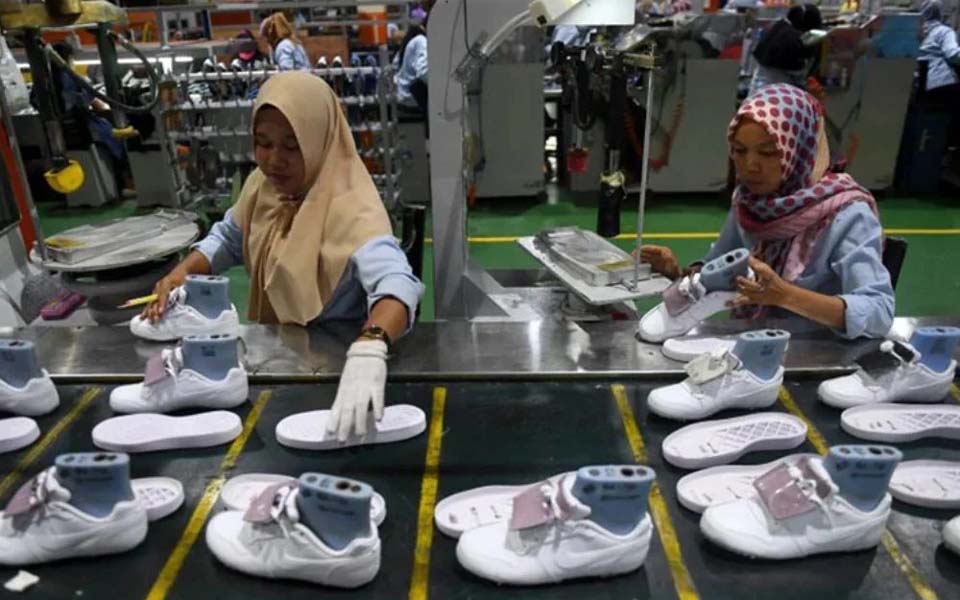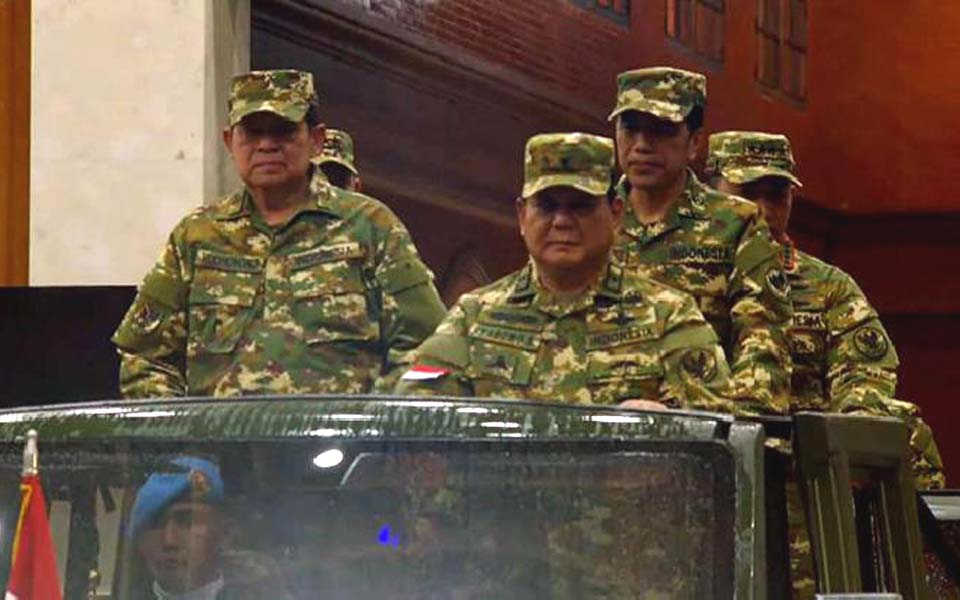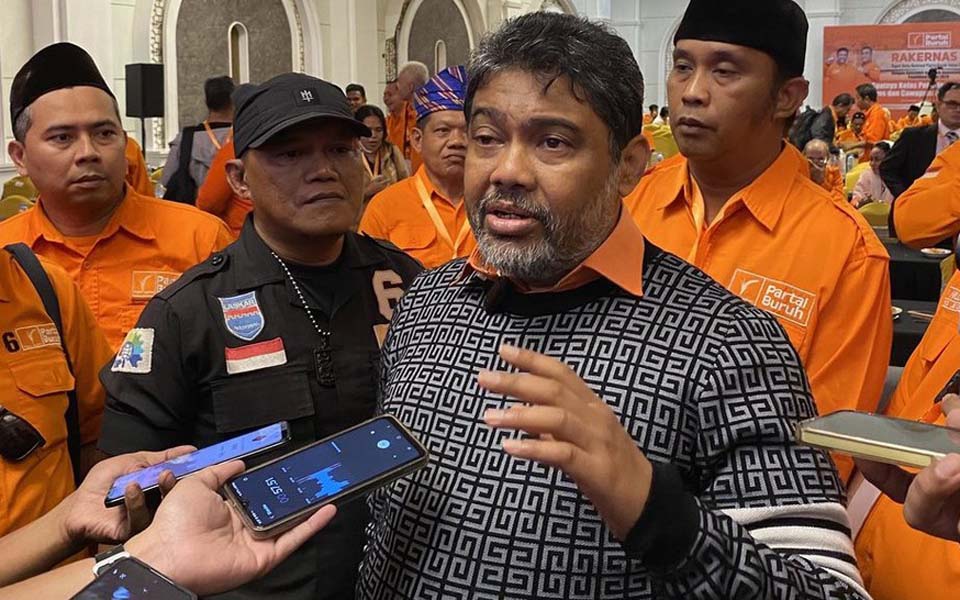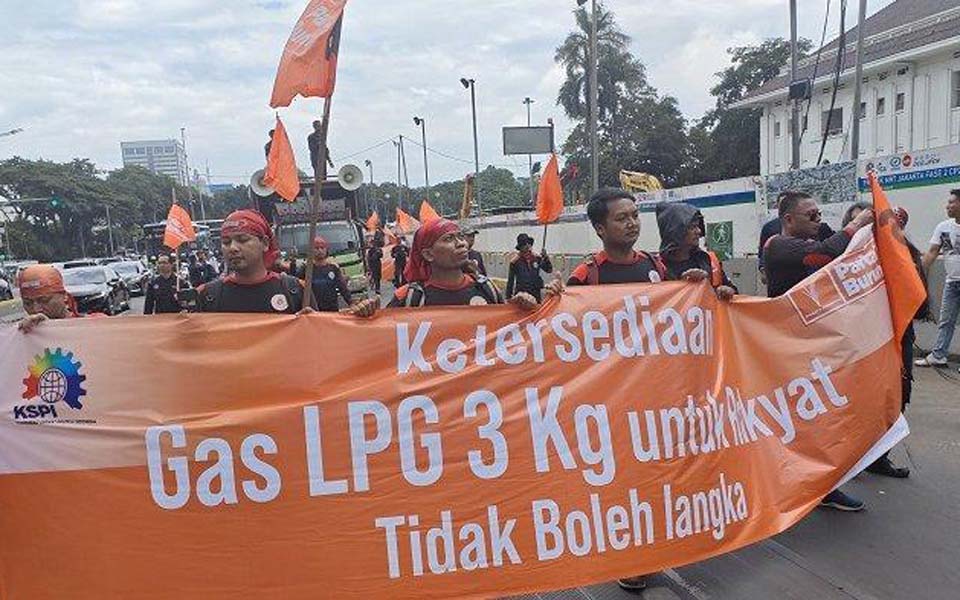Anung Wendyartaka – To this day there has yet to be any visible sign of a breakthrough in the improvement of workers’ standard of living. On the one hand, the basic rights possessed by the working class are still felt to be inadequate and on the other, workers themselves appear to fail to appreciate their existence.
These conclusions were revealed in a Kompas survey conducted on April 27-29, 2010, which showed the low level of public appreciation for the government with regard to the lives of the millions of workers in this country. More than two-thirds (66.5 percent) of respondents believe that the government’s role in proving social security, as demanded by workers in this years May Day commemorations, are still inadequate.
If asked to elaborate, all of this dissatisfaction reflected in this assessment is linked to workers’ basic rights. On the issue of minimum wage policy determination, there is a persistent debate between workers and those who employ them, with more than two-thirds (69.7 percent) of respondents for example, believing that the government’s performance in determining the minimum wage is still lacking.
The determination of the minimum wage has been a consistent tug of war between the interests of employers and workers. Companies continuously endeavour to drive wages down for various reasons, such as keeping down the cost component, so their products are more competitive in the market or so employers can continue to run their businesses profitably. Workers meanwhile are and will continue to demand a decent wage in accordance with their expectations. It is here that the government needs to play a role in acting as a bridge between these two interests, a role that is still seen as lacking.
Reformasi has not born fruit
It is not just in the determination of the minimum wage and the provision of social security that the public sees the government’s role as inadequate, but also in the issue of providing legal protection to workers. A high proportion of respondents (79.9 percent) believe that the government does not provide enough protection to Indonesia migrant workers overseas. The many cases of fraud, extortion, violence and even death that often and repeatedly befall migrant workers are evidence of the low level of protection provided by the government.
This assessment appears to be little different from the situation recorded three years ago, with the public’s level of dissatisfaction with the government’s role almost the same as in May 2007. At that time, a survey conducted by this newspaper showed that around two-thirds of respondents believe that the government’s efforts in improving workers’ lives or providing protection to workers were inadequate. Given this situation it can be said that the public believes that there has been no perceptible improvements for the working class in this country.
This becomes is even more ironic when see that this dissatisfaction is occurring during the era of reformasi or political reform. This May is the 12th year that International Labour Day has been commemorated following the fall of former President Suharto’s New Order regime, which was viewed as being hostile towards the labour movement.
After the old regime’s control ended, an important milestone was strengthened for the labour movement in Indonesia. In 1998 the administration of President B.J. Habibie finally ratified a number of pro-labour movement international Labor Organisation (ILO) conventions. One of these was ILO Convention Number 87 on the Freedom of Association that was ratified through Presidential Decree Number 83/1998 on the Freedom of Association and Protecting the Right to Organise for Workers and Employees.
But although workers have now enjoyed this freedom of association for 12 years, there are still many cases of repression against trade unions and their leaders by employers or the government siding with employers’ interests in labour cases. Because of this therefore, it is not surprising that more than half of the respondents believe the government is still failing to guarantee workers’ right to organise (55.2 percent).
On the other hand, the shackling of industrial relations problems that are generally believed to harm workers also still springs up. The imposition of contract labour systems or outsourcing for example, which is legalised under Article 64 of Law Number 13/2003 on Labour, is becoming increasingly commonplace. This system, on the one hand, benefits employers because companies can be more efficient and are able to reduce production costs by not having to pay for employees’ expenses.
On the other hand however, workers suffer financial losses because of the lack of job security. This is what was written about by Karl Marx who said that under capitalism from the aspect of the division of returns from industrial productions, wages are on one side and profit is on the other. Material objects produced are equated as being on the same level as workers themselves. Workers are alienated from produce of their own labour (Giddens, 1985).
Identity fears
If the external aspect of workers is seen as lacking support, a similar tendency is also apparent in the internal aspect of workers themselves. Currently, one of the problems that hinder the development of the labour movement in Indonesia is the still low level of consciousness and solidarity among workers themselves.
This was also revealed by the Kompas survey results. Of the respondents that were employed, almost 70 percent stated that there is no trade union or labour organisation in their workplace. Only around 23 percent of all employed respondents stated that they were members of a trade union or other labour organisation. Ironically, when asked whether there is a need for a labour organisation in the work place, the majority of (56.9 percent) of working respondents answered there was such a need because labour organisations benefit workers.
This situation is indeed a paradox. On the one hand workers believe there is a need for labour organisations, but on the other hand the majority of working respondents appear reluctant to be involved or become members or labour organisers, let alone form a trade union in their workplace. Yet with the ratification of Law Number 21/2000 on Trade Unions, workers are free to establish a trade union even if there are only 10 employees.
This criticism against workers’ consciousness can also been seen from the reluctance of working respondents in defining their states. The survey revealed that the majority (45.2 percent) of working respondents prefer to identify themselves as employees rather than workers or labourers. (Anung Wendyartaka/Kompas Research and Development)
[Translated by James Balowski.]







